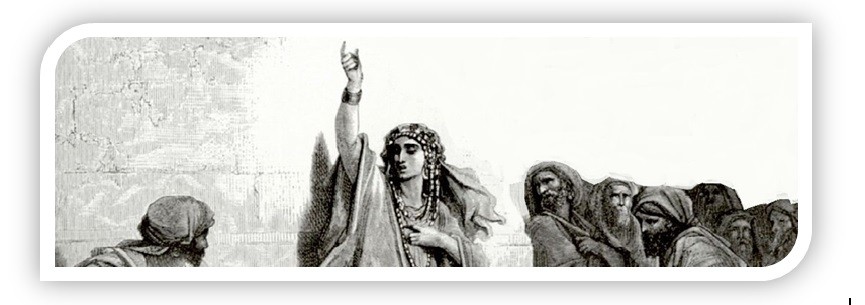Most of us are familiar with the story of Samson and Delilah (Judges 16). Delilah was cunning and manipulative. She was persistent in pushing Samson to unravel his “secret.” I wonder where she had set her eyes after Samson’s death. As old habits die hard, she probably went out searching for her next prey. Moving to the other side of the spectrum, a woman named Deborah stood as a God-fearing judge for Israel (Judges 5:3) and her trust and reliance in God’s wisdom became the foundation of Israel’s peace for forty years. The personalities of these women resemble those of Dr. Jeckyll and Mr. Hyde. The good and the evil are constantly battling head to head, just as our love for God’s kingdom can sometimes conflict with our love for the world.
 Dual Personalities
Dual Personalities
Most of us have both personalities in us. The “Delilah” in us (be it conscious or unconscious) tends to covet, to manipulate, or to conquer, while the “Deborah” in us (be it conscious or unconscious) seeks God’s wisdom, relies on His blessings, and lives by His Word. Coveting, manipulating, and conquering can come in various forms such as flying off the handle if we don’t get that parking space, talking behind someone’s back, or cheating on our taxes. The list of examples can be tremendous. Thankfully, the Deborah in us keeps us in check: listening for God’s voice, relying on His blessings, trusting in His Word.
For the readers who may have thought that my suggestion of having a “Delilah” in all of us is very offensive, my deepest apologies to you. Perhaps, it was a rather extreme analogy. However, truth be told, I think that many people would agree that each of us has the tendency to act like Delilah just as each of us strives to be like Deborah. For the most part, we like to be just and equal to others; and we like to be methodical and wise in our decisions, and most importantly, we like to follow God’s Words. When talking to friends and colleagues, it is refreshing to know that I am not the only one who feels this way. With our awareness of such dual personalities – how do we deal with it? How do we tame the Delilah in ourselves as we nurture the Deborah? To answer these questions, let us ponder and look into the life of Deborah, because taming the Delilah requires living a life the way Deborah lived hers.
 The Source of Validation
The Source of Validation
In Judges 4:4-5, we learn that Deborah was a prophet who settled the disputes in the land of Israel. She made decisions based on what God told her (Judges 4:6). Obviously, her commands were not from her own insights – her instructions came directly from God. To tame the Delilah, we need to stop seeking validation from the people around us and instead pursue the blessings and validation from the one true God. Taming the Delilah in ourselves requires nurturing our relationship with God; spending time with Him and His Word; worshiping Him; and having fellowship with other believers. Most importantly, taming the Delilah requires deep trust in God and His Word. It requires seeking God’s wisdom to make the right decisions.
Deborah lived by God’s Words. She required no validation from men, and therefore the art of manipulation was never attractive to her.
She received the true validation from God and it was obvious: God helped her reap great rewards. Judging a land with God by her side resulted in a 40-year peace from enemies. This is the true validation that each of us should pursue. Our society teaches us to fight for validation by being the clever, controlling, manipulative, or cunning. Our society is very similar to the society that Delilah lived in. Delilah felt empty inside and she was in constant need of the validation of others; she needed it so much that she was willing to covet, manipulate, and connive others. The next time you feel like you just have to dominate the conversation, win the argument, damage someone’s reputation, cheat or lie, consider Delilah and Deborah. Choose to reject the Delilah in yourself. Nurture and yield to the Deborah, allowing the peace of God, which transcends all understanding, guard you hearts and minds in Christ Jesus (Philippians 4:7).
Dorothy Kropf is a doctoral student of Education, specializing in Educational Technology. As a doctoral student, she would like to see individuals in poverty-stricken communities receive affordable college education through portable technological systems. She currently works for CourseMatters.org, an organization that advocates for all college students. Dorothy also facilitates the “Paraprofessional Counseling for Christian Women” at Be A Disciple. View a video about her course here.






